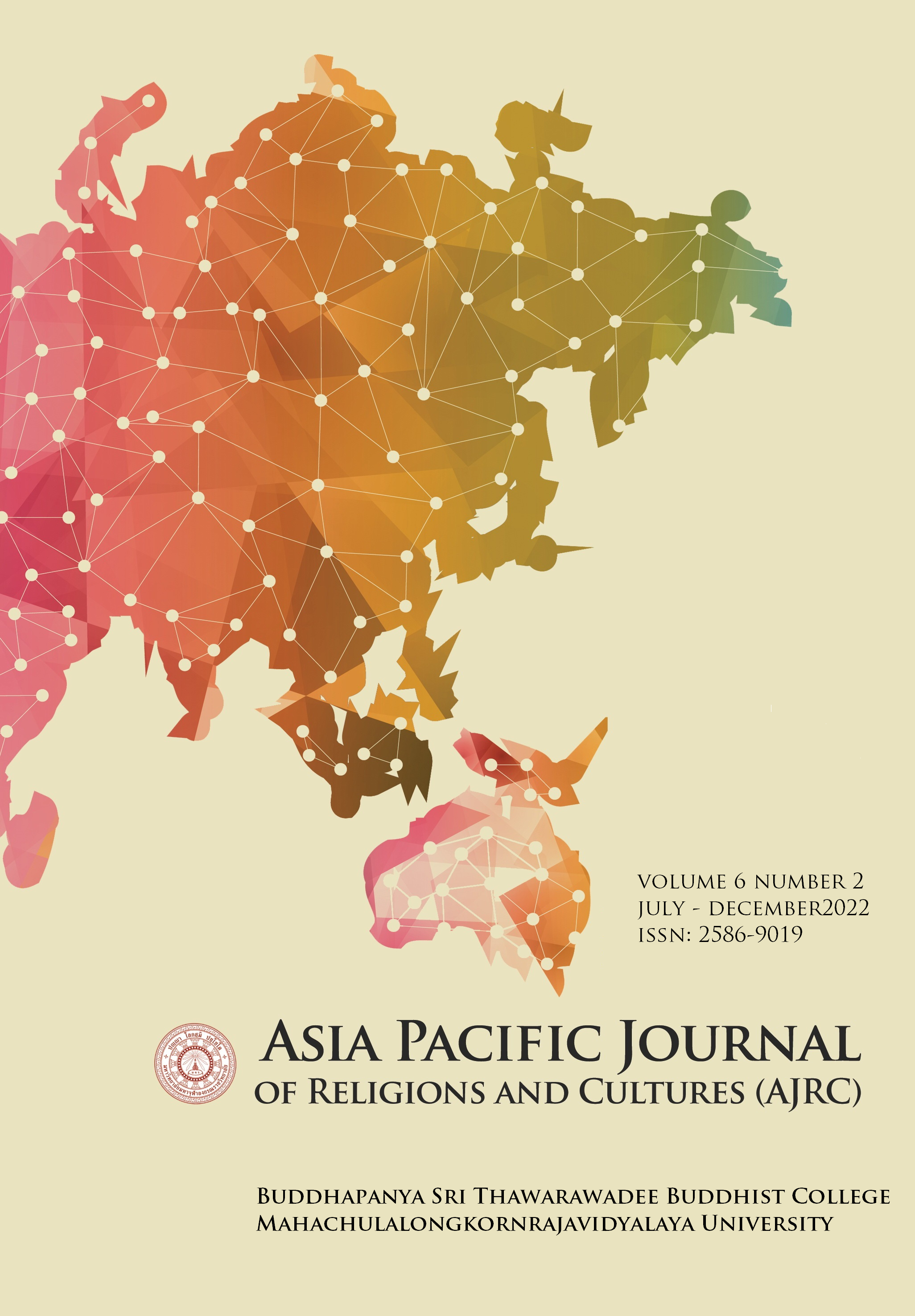SOCIAL WELFARE PROGRAMS FOR ELDERLY PEOPLE AND WOMEN IN THAILAND
Main Article Content
Abstract
The population of elderly people is increasing rapidly in Thailand and the number of elderly people will reach 13 million by the end of 2021. The Thai Government has prepared social welfare programs for elderly people. When elderly people suffer from health problems, Governmental Organizations (GOs) have launched the health care services for them. The health care services of GOs are outstanding for dealing with the health problems of elderly people. Therefore, elderly people can receive health care services without difficulty. Elderly women are confronted by numerous challenges than elderly men. The main responsibility of elderly women is the family, such as to raise grandchildren, to be strong and steadfast, and to maintain the faith of the tribe to their descendants. Fortunately, they can access the health care services which are supported by many sectors such as Local Governmental Organizations (LGOs), health personnel, health volunteers, caretakers, and family members. These sectors have prepared social welfare programs to help elderly people and women have quality of life in Thailand.
Article Details

This work is licensed under a Creative Commons Attribution-NonCommercial-NoDerivatives 4.0 International License.
References
Boonruangsak, C., & Sudnongbua, S. (2019). Health promotion for Thai elderly people. Dhammathas Academic Journal, 19(4), 199-208.
Chantagul, W. (2019). Roles of local administrative organization on the quality-of-life development for elderly people in Meuang District,
Ubonratchathani Province. Humanities and Social Sciences Journal, Ubon Ratchathani Rajabhat University, 8(1), 447-459.
Jomboonrueang, P., & team researchers. (2013). Development approach of social welfare for self-dependent elderly people in Nakhon Sawan Province. Social Sciences Research and Academic Journal, 8(24), 15-28.
Jooprempree, K., & Jong-udomkarn, D. (2019). Perceptions of elderly women in relation to the concept of family care: Case studies in community at Laplae District, Uttaradit Province. Journal of Nursing and Health Care, 37(2), 73-82.
Khueankaew, P., Rattanasak, T., & Yawainawichai, U. (2019). A comparative study of collaborative public service choices creation for elderly of Mae Hia Town Municipality, Nong Khwai Sub-district Municipality, Chiang Mai Province. Governance Journal, 8(1), 405-428.
Kitsumban, V., Thapinta, D., Sirindharo, P. B., & Anders, R. L. (2009). Effect of cognitive mindfulness practice program on depression among elderly Thai women. Pacific Rim International Journal of Nursing Research, 13(2), 95-108.
Krivart, K., Supthun, V., & Sookhom, A. (2016). The involvement of civil society in helping children, women, the elderly and people with disabilities in the community. Community Research Journal, 10(3), 20-30.
Nilthirach, W., & Jong-udomkarn, D. (2020). Changing the roles of the women in the family according to the time dimension as perceived by Phu Tai elderly women: A qualitative study. Journal of Nursing Science and Health, 42(4), 30-39.
Nirarat, W., Klangkhan, S., & Thaewpia, S. (2017). Developing a model for health care of the elderly in Bu Thai community, Huay Yang Sub-district, Bauyai District, Nakhon Ratchasima Province. Journal of Nursing, Public Health, and Education, 18(3), 117-127.
Petcharadee, K., & Wisrunrat, B. (2018). The ways to find out the people who want to be trained and compare the training results between Thai and Laotian women for the elderly care training course in Thailand. Sripatum Review of Humanities and Social Sciences, 17(1), 23-32.
Poopunsri, V., & Thamrongworaku, P. (2018). The quality of life and satisfaction of the elderly in a nursing home for women. Journal of Chandrakasemsarn, 24(47), 110-125.
Prasertsin, U., Suriyo, T., & Nutmatawin, P. (2018). Well-being of elderly people: The various concepts and factors involved. Thai Journal of Health Education, 41(1), 1-15.
Promsri, A., & Chamnongkich, S. (2010). Comparison of gait parameters between elderly women with and without balance impairment during walking over obstacle. Journal of Associated Medical Sciences, 43(1), 39-50.
Satraphand, K., Panichpathom, S., & Metapirak, Y. (2017). Senior wellness center characteristics preferred by elderly women. Veridian E-Journal, Silpakorn University, 10(3), 138-151.
Senanuch, P., & Suntonanantachai, T. (2018). Social welfare development for the elderly informal workers in order to reducing social disparity. Journal of Social Work 26(1), 146-164.


